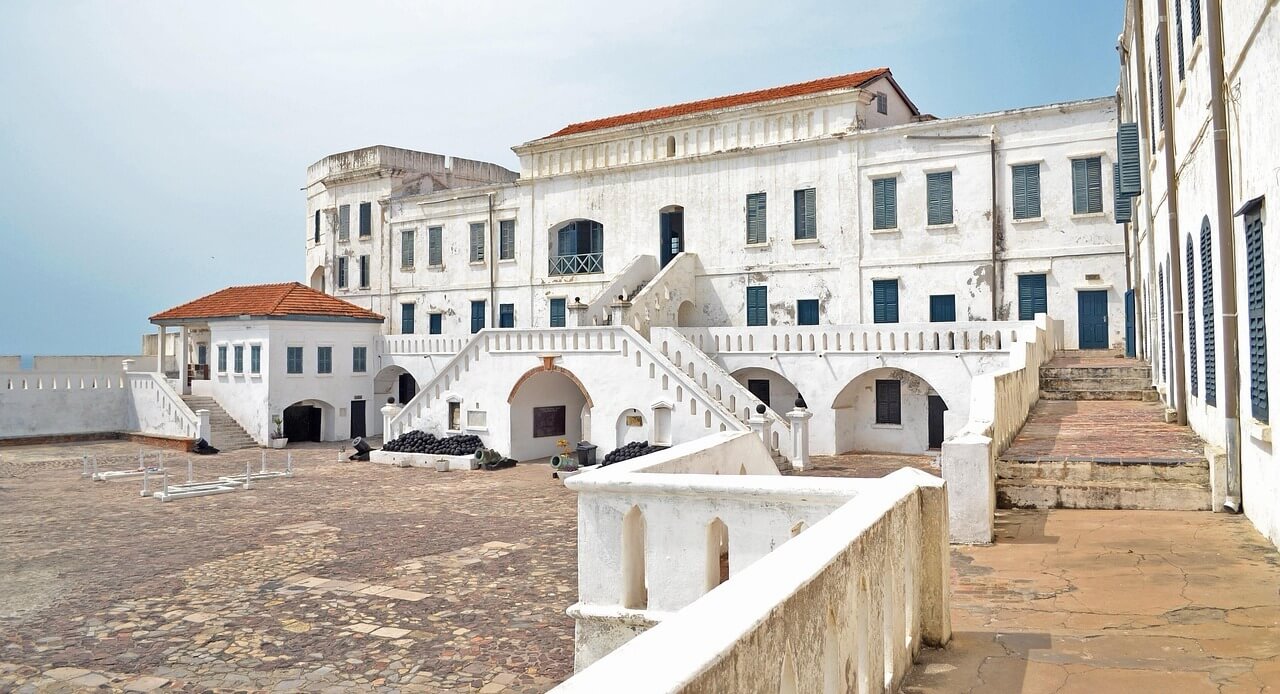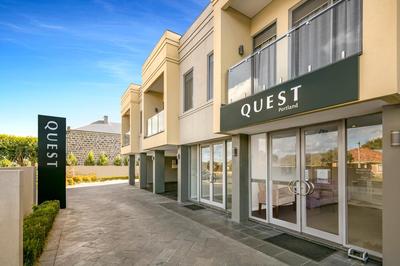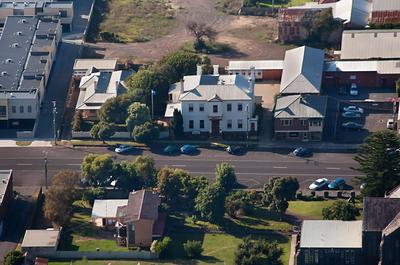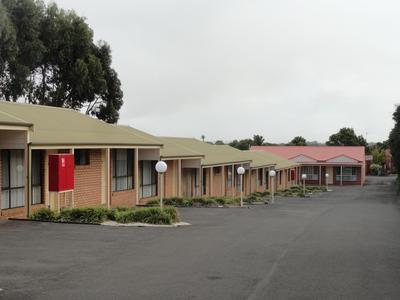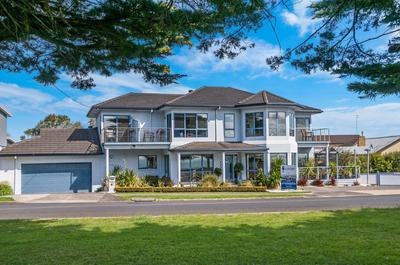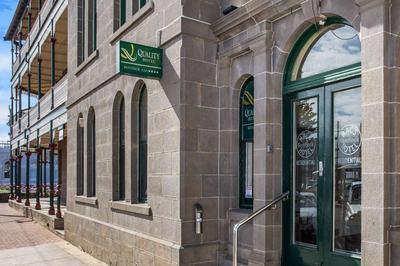When to visit Cape Coast?
Cape Coast, with its stunning coastal scenery and rich history, enjoys a tropical climate characterized by two main seasons: the dry season and the wet season. The best time to visit Cape Coast is during the dry season, from November to March, when the weather is warm and sunny, perfect for outdoor activities and beach relaxation.
Summer, which lasts from March to June, can be hot and humid, with occasional rain showers. This is a good time to experience local life, although keep an umbrella handy just in case.
In autumn, from September to November, the rains begin to taper off, and the temperatures remain warm. It’s a quieter time to visit, ideal for those looking to avoid crowds. Winter is mild and pleasant, with lower humidity and warm temperatures.
Overall, the ideal time to visit Cape Coast is from December to March when you can enjoy clear skies and the vibrant cultural scene.
How to get to Cape Coast?
Traveling to Cape Coast is relatively straightforward, thanks to various transportation options. If you're coming from Accra, you can catch a bus or a shared taxi. Buses depart regularly from the central bus terminal in Accra, with the journey taking about 3 to 4 hours. The main bus companies include STC and Metro Mass.
Another option is to hire a private car or take a ride-sharing service; this gives you flexibility to explore along the way. If you prefer flying, the nearest airport is Kotoka International Airport in Accra, from where you can continue your journey by road.
While there is no direct train service to Cape Coast, the bus system is efficient and affordable, making it a popular choice for both locals and tourists.
Tourist activities in Cape Coast
Cape Coast offers a vibrant mix of cultural and outdoor activities for every type of traveler. One of the must-see attractions is the Cape Coast Castle, a UNESCO World Heritage Site, which played a pivotal role in the trans-Atlantic slave trade. Visitors can explore its dark historical corridors and learn about the impact of slavery.
Nature lovers will appreciate the nearby Kakum National Park, where you can hike through the lush rainforest and walk on its famous canopy walkway, suspended high above the ground.
For those interested in local culture, participating in traditional drumming and dance workshops can be a memorable experience. In the evenings, unwind at one of the local beach bars with live music, or take part in beach volleyball.
Shopping enthusiasts can explore local crafts at the vibrant markets where you’ll find handmade souvenirs, kente cloth, and more.
Events and festivals
Cape Coast hosts several vibrant annual events that showcase its rich culture and history. One of the most notable is the Fetu Afahye Festival, held in September, which involves colorful parades, traditional music, and various cultural performances. It celebrates the rich heritage of the people and attracts many visitors.
Another significant event is the annual Emancipation Day held on July 1st, remembering the victims of slavery and celebrating freedom, featuring local music, dance, and ceremonies.
Throughout the year, Cape Coast also hosts numerous smaller events and cultural fairs, reflecting its lively community spirit and offering visitors a unique glimpse into local traditions.
Family and kids activities
Cape Coast is a family-friendly destination with numerous activities suitable for kids. The picturesque beaches are great spots for children to play and swim safely under the watchful eyes of parents. Many beachside resorts also offer kid-friendly facilities.
A visit to the Cape Coast Castle is educational for older children, providing a historical perspective on Ghana's past. Nearby, the Kakum National Park can be an adventurous outing, where families can embark on guided tours and nature walks.
Additionally, the local markets provide opportunities for kids to explore and even learn how to bargain, which can be a fun lesson in culture and commerce.
For younger children, some hotels offer play areas and organized activities which can give parents a chance to relax while the kids have fun.
What to see in Cape Coast?
Cape Coast is rich in history and natural beauty, offering many attractions worth exploring:
- Cape Coast Castle: A UNESCO World Heritage Site that offers tours highlighting its history in the slave trade.
- Kakum National Park: Famous for its canopy walkway amidst lush tropical forest, ideal for nature lovers.
- Fort William: A hilltop fort providing scenic views of the coastline, worth a visit.
- Elmina Castle: Located just a short drive away, another crucial historical site linked to the slave trade.
- Central Market: A vibrant market where visitors can shop for local crafts, textiles, and food.
Accommodation in Cape Coast
Cape Coast offers a diverse range of accommodation options to suit every budget and preference. For beach lovers, beachfront hotels like the Coconut Grove Beach Resort provide stunning views and easy access to the ocean.
Mid-range options include charming guesthouses that often reflect local architecture and culture, perfect for an authentic experience. For those on a budget, there are several hostels and affordable lodgings near the central market that provide comfort without breaking the bank.
Staying in central neighborhoods like the Cape Coast township allows easy access to local attractions and dining hotspots, making it an ideal base for exploring the city.
Important numbers and information
- Emergency Numbers: Police - 191, Ambulance - 192, Fire - 193
- Tourist Information Center: Near Cape Coast Castle
- Main Hospitals: Cape Coast Teaching Hospital
- Airport Contacts: Kotoka International Airport - +233 30 277 1000
- Public Transport Info: Local buses run frequently; fares are affordable.
- Taxi Apps: Uber is available but limited; local taxis are widely used.
- Currency: Ghanaian Cedi (GHS); credit cards are accepted in major hotels and restaurants.
Where to eat?
Cape Coast boasts a delightful culinary scene where you can savor both local and international cuisines. Traditional dishes often feature fresh seafood, with grilled tilapia and kelewele (fried plantains) being local favorites.
The best area for dining is the seaside strip, where you’ll find restaurants offering stunning ocean views and a variety of options, from street food to fine dining.
For a casual meal, try one of the local chop bars, where you can feast on jollof rice or fufu with soup at reasonable prices. Average meal prices range from GHS 20 - GHS 80, depending on the venue.
Nightlife – where to go out?
Cape Coast's nightlife is vibrant and diverse, catering to varied tastes. The city has numerous bars and clubs featuring local music and DJ performances. Popular spots like the Oasis Beach Resort often host live bands, making it a great place to unwind while enjoying good music.
For those looking to dance, clubs such as Twists Nightclub offer lively atmospheres where you can enjoy the latest hits and traditional Ghanaian music.
The nightlife districts around the beach area are particularly lively, where evenings come alive with festivities, street performers, and a blend of locals and tourists mingling.
Transport and taxis
Getting around Cape Coast is convenient thanks to various public transport options. Local buses are frequent and cover most areas of the city, with fares typically costing less than a dollar. Taxis are also readily available, and you can flag them down or arrange for rides through local apps.
- Public Buses: Affordable and cover major routes.
- Taxis: Metered taxis or negotiated fares; ensure to agree on prices upfront.
- Safety Tips: Always choose registered taxis and avoid traveling alone at night.
Parking and public garages
Parking in Cape Coast is generally available but can be limited in the downtown area. Public parking lots are scattered throughout the city, particularly near popular attractions such as the Cape Coast Castle and Central Market.
Prices are usually affordable, typically around GHS 2 - GHS 5 per hour. If you’re planning to drive, be cautious about parking restrictions to avoid fines. Always look out for designated parking zones, and ensure your vehicle is secured.
Surroundings of Cape Coast
If you have the time, exploring the surroundings of Cape Coast is a great idea. One must-visit nearby destination is Elmina, only a short drive away, famous for its historic castle.
Another excellent day-trip option is Kakum National Park, perfect for nature lovers who enjoy hiking and wildlife spotting.
The coastal road also leads to beautiful beaches like Nzulezo, which is unique for its stilted town entirely on water, offering a different experience and stunning vistas.
